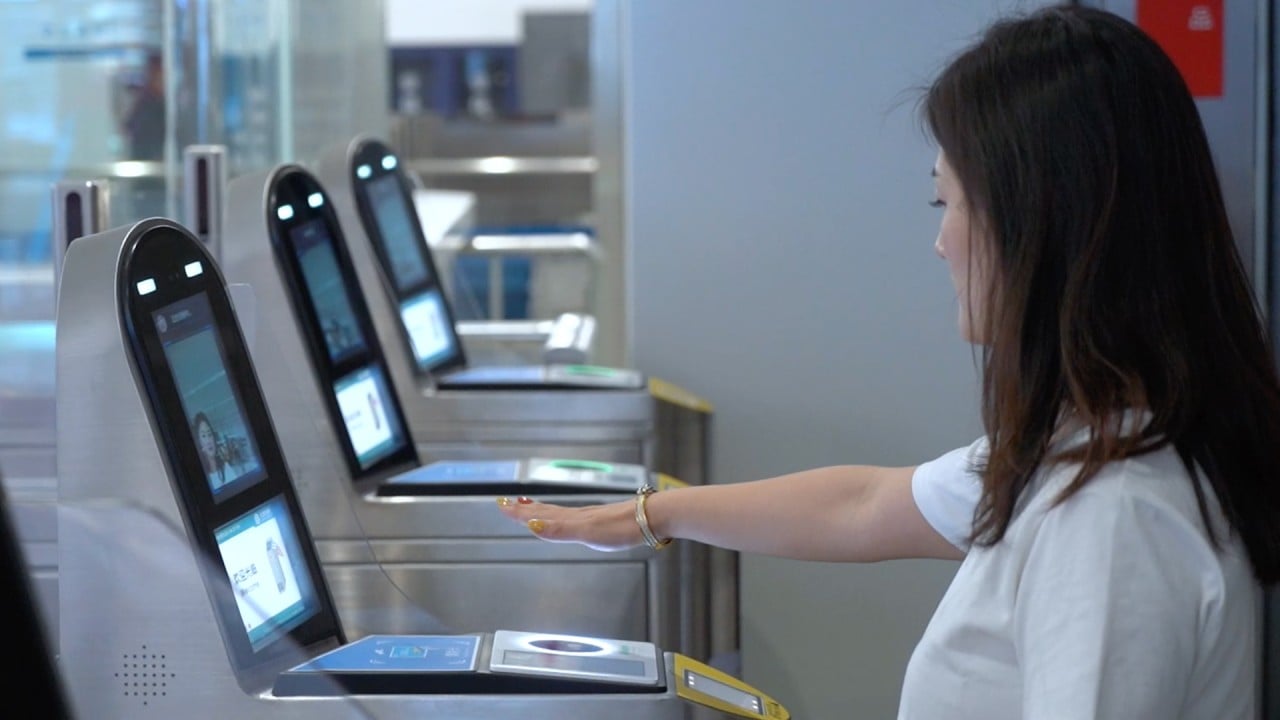
In technological race for greater convenience, we must not leave privacy in the dust
- China and other countries are quickly adopting biometric payment methods and digital currency for everyday needs, but many worry this comes at a cost
- The tech also raises questions about how to set up guardrails to prevent fraud, tracking and other data misuse
Take subway tickets in Beijing, for example. Passengers 20 years ago had to line up at counters to obtain paper tickets, which they then handed to staff at the gates to enter train platforms.
China brings digital yuan machines to Sanya to boost e-CNY use
China is not alone in advancing biometric payments. E-payment giants such as Amazon and Mastercard are piloting biometric payment methods, and the market could be worth US$18.6 billion by 2026, according to KBV Research.
While convenience is a huge benefit, some analysts have raised questions about how to strike a balance between convenience and privacy.
Biometrics refers to technology that recognises an individual based on their unique biometric characteristics such as facial and hand geometry, as well as fingerprints.
The technology has also raised questions about how to set up guardrails to prevent fraud, tracking and other data misuse. In the face of public concern, businesses and governments have made pledges about privacy protection, though they might not be enough to remove all the worries of civil rights groups and privacy advocates.
Biometric payment is just one example of the many new technological developments that bring convenience at the cost of privacy.
“IoT devices can be used by various entities to colonise and obtain access to people’s homes and bodies while potentially decreasing their anonymity,” Elvy said in a 2022 article published on Unesco’s website.
Another technological innovation at the centre of the conflict between convenience and privacy is central bank digital currency (CBDC).
Unlike cryptocurrencies, which can hide the identity of parties involved in transactions and have been criticised by governments for facilitating money laundering, CBDC in theory provides real-time transaction information to governments.
China has been the front runner in introducing a CBDC, dubbed the digital-yuan, as it is eager to bypass the US-dominated Swift payment network. Some local governments have begun to pay civil servants, tax rebates and government suppliers with digital yuan in recent months.
Chinese city plans to pay employees using digital currency
Australia, India and Hong Kong are among the regions that have launched or are planning to launch CBDC pilots, and privacy is at the centre of the public debate.
Governments, including China, have proposed different disclosure requirements for different types of transactions to allay fears of privacy infringement. For example, the Chinese government has said parties involved in small transactions could stay anonymous and it would only require information for big or suspicious transactions.
Beijing also argues people’s privacy is better protected with the digital yuan because their data will not be given to commercial operators. However, that also means the data will be centralised by the government.
These are just some examples of the trade-offs between convenience and privacy we must grapple with as technology accelerates.
Convenience should not be the only goal of technological advancement. Privacy is no less important in the equation.


